The Women
 for sex-related material, language, some drug use and brief smoking.
for sex-related material, language, some drug use and brief smoking.
Reviewed by: Michael Karounos
CONTRIBUTOR
| Moral Rating: | Offensive |
| Moviemaking Quality: |
|
| Primary Audience: | Adults |
| Genre: | Comedy Drama |
| Length: | 1 hr. 54 min. |
| Year of Release: | 2008 |
| USA Release: |
September 12, 2008 (2,600 theaters) DVD: December 19, 2008 |
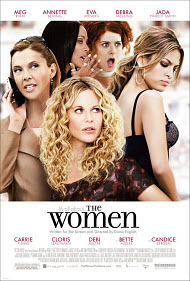
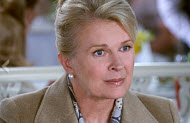
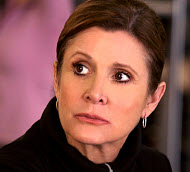
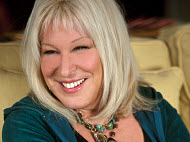

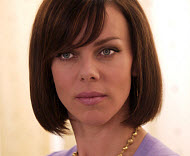
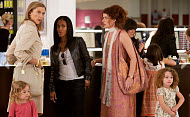
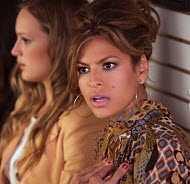
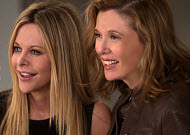
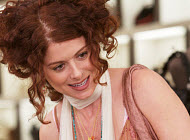

Biblical women with admirable character, include: Mrs. Noah, Mary (mother of Jesus), Esther, Deborah, and Milcah, daugher of Zelophehad.
Is formalized marriage becoming obsolete? Answer
Many people are convinced that traditional marriages don’t work and that this practice should be abandoned. What does the Bible say about marriage?
Divorce—Under what conditions may Christians divorce and remarry? Answer
What’s wrong with being gay? Answer
Homosexual behavior versus the Bible: Are people born gay? Does homosexuality harm anyone? Is it anyone's business? Are homosexual and heterosexual relationships equally valid?
Read stories about those who have struggled with homosexuality
| Featuring |
|---|
|
Meg Ryan … Mary Haines Annette Bening … Sylvie Fowler Eva Mendes … Crystal Allen Debra Messing … Edie Cohen Jada Pinkett Smith … Alex Fisher Bette Midler … Leah Miller Candice Bergen … Catherine Frazier Carrie Fisher … Bailey Smith Cloris Leachman … Maggie See all » |
| Director |
|
Diane English |
| Producer |
| Diane English, Mick Jagger, Bill Johnson, Victoria Pearman, Jim Seibel, Bobby Sheng, James W. Skotchdopole |
| Distributor |
| Picturehouse Entertainment |
“It's all about… The Women”
The critics are ripping “The Woman” at a ninety per cent clip over at Rotten Tomatoes and it’s difficult not to be equally harsh. First, a little background. The original movie (1939) is a cult classic that I’ve been showing to amused family, friends, and students for ten years. Unfortunately, director and script-writer Diane English dulled the original’s razor-edged plot into a butter knife spreading feminist self-love. She stripped the story of its inter-feminine conflict and dressed it in the familiar and, by now, hackneyed myth of how men are no good. The movie does try to raise the stakes by suggesting that men are not only no good, they’re also irrelevant except for producing children. In either case, the movie comes off as a typical, one-dimensional feminist sermon which, especially in the wake of the Palin nomination, seems utterly outdated and shallow.
For those who have never seen the original, the premise of the present version will be familiar to those who are fans of homosocial comedies like “Sex and the City”: a group of women friends negotiate the rocky waters of career and relationships with men, only to discover in the end that the only man you can trust is a woman. Mary Haines (Meg Ryan) is a happily-married super-mom who neglects her female relationships with her friends and daughter because she’s being a dutiful wife, cooking and staying at home. Sylvie (Annette Bening) is her best friend and editor of a woman’s fashion magazine. Edie (Debra Messing) is the movie’s fecund mother, and the butt of child-bearing jokes, who keeps having children because she wants a boy. Filling out the cast is a celebrity line-up of Cloris Leachman (as the housekeeper), Candice Bergen (as Mary’s mother), and Eva Mendez (as Crystal).
In brief, Mary discovers that her husband is cheating on her with Crystal Allen and eventually divorces him. Sylvie, to save her career, tells the gossip columnist (Carrie Fischer) what happened to Mary. The rest of the movie is spent emphasizing the rupture between Mary and Sylvie, not between Mary and Steven, as in the original. The problem with that is that English’s modified plot has no tension. In the original, Sylvie’s betrayal is serious and permanent; it sets up the ending for some delicious revenge on Mary’s part. Revenge as a theme is talked about in English’s version, but only in flaccid dialogue with no follow-through, because Mary and Sylvie remain best friends. In the original, there is real betrayal, real rupture, and real retribution. That’s what made the original a great movie about human relationships and not a failed movie about feminist narcissism.
The other problem with the movie is how it prominently promotes lesbian relationships in such a clumsy manner that English may as well have inserted title cards as they did in silent movies saying: “Lesbianism Good; Men Bad.” The first time is played for a laugh: Alex’s girlfriend is a hostile supermodel with anger issues. The second time the lesbian character launches into a predictable screed against men (three reasons why women are better than men). The third time, the setting is a lesbian restaurant which serves as the background for Sylvie’s betrayal. More casual references to Alex’s lesbianism abound throughout the movie, but always as a positive. The movie even ends with Crystal Allen, the most beautiful woman in the movie, choosing to be a lesbian herself. On the other hand, relationships with men are never referred to positively. You don’t have to be a Christian to see a problem with the ideological balance there.
Marriage is the issue in both the play and the original movie. In this movie, however, the theme is the love affair between women. The ultimate betrayal in the 1939 movie is the betrayal of the husband-wife relationship. In English’s version, the ultimate betrayal is between friends, a point she hammers home three times in accordance with the Hollywood rule of three: say it three times in different ways or contexts. The most culminating example of that emphasis is when Sylvie and Mary were trying to resolve their alienation. Sylvie at one point thought Mary was talking about Steven. But Mary, showing which relationship is most important to her, replies: “It’s not about Steven and me. I’m talking about you and me.”
Clare Boothe Luce’s play was a satire about rich men and women having affairs, with the emphasis on women. As a 1930s comedy, the original satirized all the romantic and screwball comedies of that decade whose primary subject was the inadequacy of marriage. The Fred Astaire/Ginger Rogers and Cary Grant/Irene Dunne movies are the epitome of such movies. Marriage, in that genre, was always something to laugh at, to avoid, to succumb to as a last resort. Gems of the genre include “The Philadelphia Story,” “It Happened One Night,” “The Gay Divorcee,” “Nothing Sacred,” “The Awful Truth,” “Top Hat,” and “His Girl Friday,” to name just a few. They’re all wonderful movies, and they all satirize marriage.
In an interview, English says,
“I wanted to turn the film into a love story between two straight women. The original is all about whether Mary Haines will reconcile with her husband, who betrayed her trust. In my version, I want the audience to care more about whether Mary Haines will reconcile with her best friend Sylvie Fowler, who also betrayed her trust.”
http://www.emanuellevy.com/article.php?articleID=11023
English goes on to say that she did so because she was making a movie for women. This is the difference between her and the legendary George Cukor, director of the original. He could see that all stories, whether about men or women, are about the human drama, about an individual man or woman’s fall being a metaphor for the fall of all men and women. Men were equally guilty in the original, but the emphasis was on upper class women who were shown to be no better than lower class predators like Crystal Allen.
It is revealing in the wake of the recent vicious smearing of Sarah Palin as a “stewardess” and “trailer trash” that the movie also inverts the satire of class. English, a coastal elitist and feminist, couldn’t bring herself to make fun of her own kind, so she mocks the lower class women. She refers to a “skank who sold fabric” and in derogatory terms the “schpritzer” girl at the perfume counter. Also, in an anti-Christian twist added by English, the unprincipled manicurist prominently wears a black cross around her neck, as does little Molly when she’s going through her phase of dressing and making up like a streetwalker. Thus, the movie satirizes not only men, not only lower class women, but in the subtlest manner possible, also Christianity, portraying a divorce at Christmas time, shown by the housekeepers decorating the Christmas tree. The movie is also peppered with anti-Christian profanity, alternately mixing oaths of “Jesus” and “Oh my G**” with Jewish slang, as well as numerous instances of the s-word, a**, and perhaps one or two others.
For fans of the original, there are a few moments of familiar humor. Although Hedda Hopper and Mary Boland’s characters (l’amour! l’amour!) are given short shrift, and Nancy Blake’s was turned into a lesbian, Annette Bening and Debra Messing turn in occasionally good comedic turns. Benning is nearly twenty years older than Rosalind Russell was, and this also deprives the movie of its tension between young and attractive women vying for money and power, but Messing’s performance is even better than the one in the previous movie, the only role one can say that of. Given the same lines and same characters, it’s interesting to see how much better and smarter were the women actors in the original.
Had English stayed with the script, which is a classic, or followed the plot of the original movie, which is a classic, she might in turn have been fortunate enough to make a classic herself. Unfortunately, her ideology overwhelmed her artistic skills and the result is what 90% of the secular critics have called it: a mess.
Violence: None / Profanity: Moderate / Sex/Nudity: None
See list of Relevant Issues—questions-and-answers.


Moral rating: Extremely Offensive / Moviemaking quality: 3½
The movie did have some humor in it, a lot of women in the theatre were laughing.
Moral rating: Extremely Offensive / Moviemaking quality: 2½
The one worthwhile moment in the movie is the childbirth scene. Debra Messing’s facial expressions are hilarious! She really gave it her ALL!
After reading the reviewer's comments, I'm planning to watch the original and hopefully enjoy THAT movie.
Moral rating: Average / Moviemaking quality: 2½
My Ratings: Moral rating: Average / Moviemaking quality: 3½